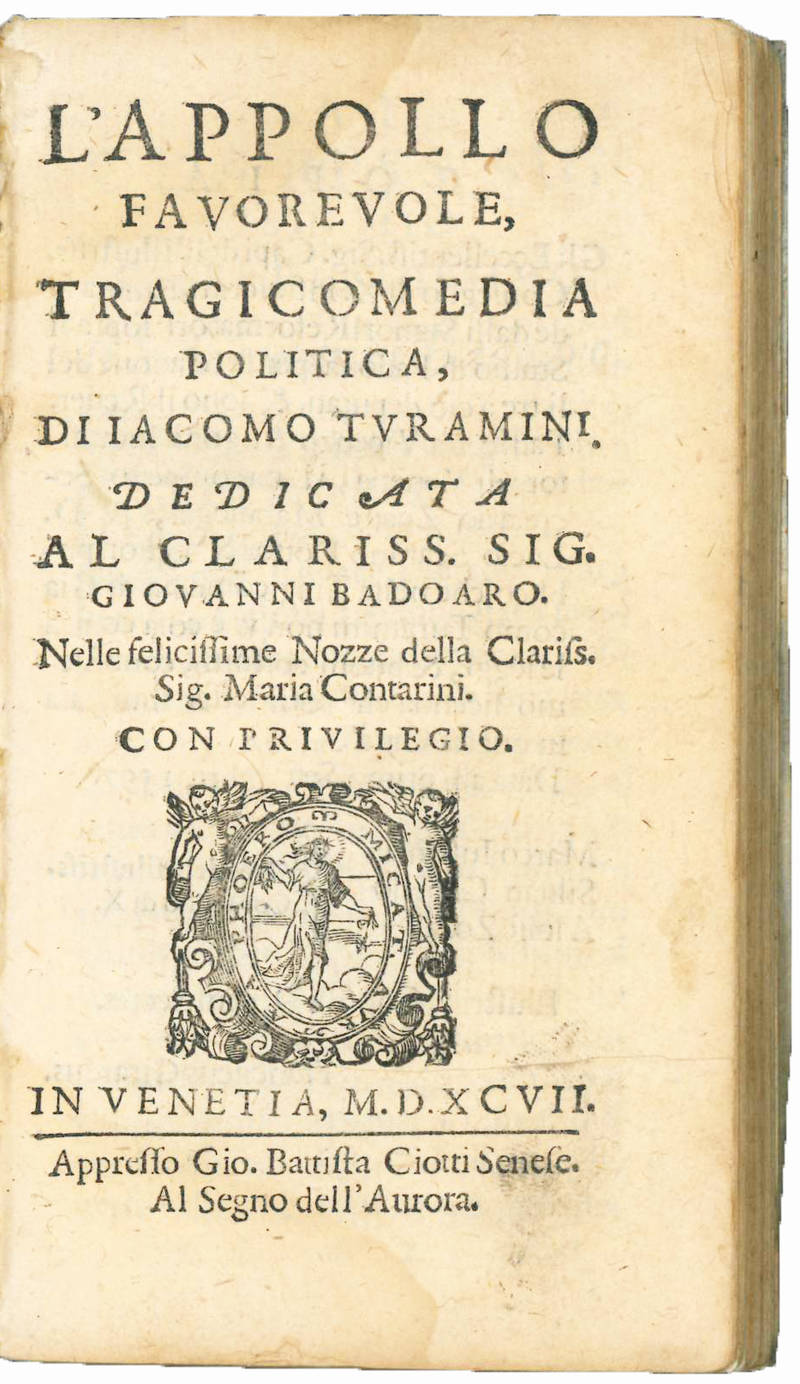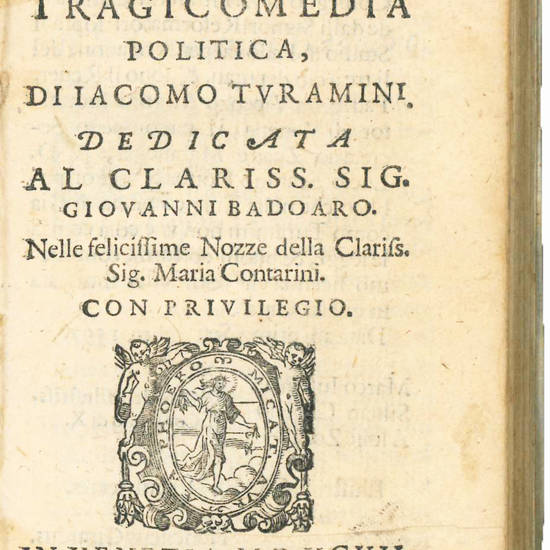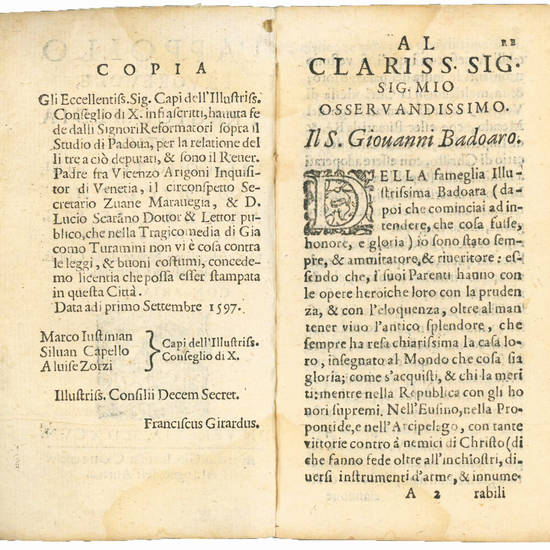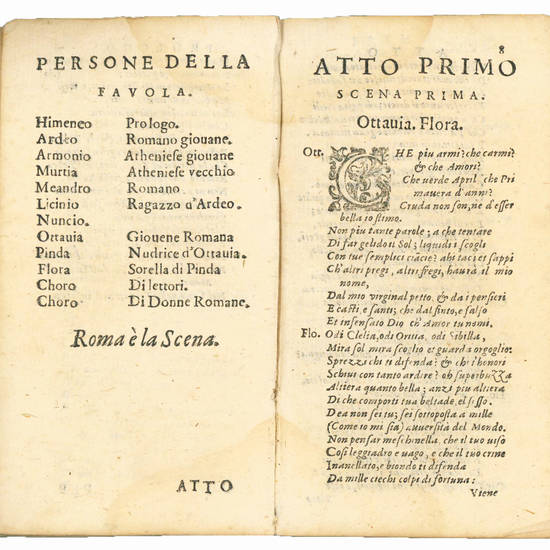A URBAN TRAGICOMEDY – FOR THE WEDDING BADOER-CONTARINI
12mo (134x73 mm). 65, [1] leaves. Collation: A-E12 F6. The last leaf is a blank. Printer's device on title page. Roman and italic types. Woodcut decorative ornaments and initials. Later flexible vellum. On the last leaf verso manuscript dedication “Alla Serenis.ma Sig.ra Palazzina Anconitana” signed with the letter “G” and followed by the drawing of a heart within a square. Light marginal staining, more strongly in the second half of the volume.
Rare first edition of this tragicomedy in five acts in verse dedicated to Giovanni Badoer on the occasion of his wedding with Maria Contarini.
In the dedication, dated Venice, 20 September 1597, the author states that with this play he introduced something new into drama by bringing love stories far away from woods and rivers (i.e., pastoral and piscatorial dramas) and setting them for the first time in a urban landscape (Rome is the scene): “nel prendere argomento io della mia favola, Cittadino, & nell'introdurre Città, e Cittadini, forsi non ho fatto male” (l. A3v) (cf. L. Riccò, Minotauri, centauri, ermfroditi: misti e mostri teatrali italiani, in: “Norme per lo spettacolo, norme per lo spettatore: teoria e prassi del teatro intorno all' ‘Arte Nuevo' ”, G. Poggi & M.G. Profeti, Florence, 2011, p. 89).
“Due secoli più tardi per condizione dei personaggi, non principi, non gente d'altissimo affare, ma semplici borghesi, il dramma del Turamini si sarebbe chiamato tragedia urbana” (E. Bertana, La tragedia, Milan, a. 1905, pp. 210-212).
Born in Siena to a wealthy family, Bernardino Turamini decided to take the vows as an observant minor and to change his name to Giacomo. After the conversion his literary activity focused exclusively on religious themes. He later moved to Rome, where he entered the circle of the Barberini family and printed a series of sacred dramas based on the life of saints and biblical heroines.
Edit 16, CNCE52682; USTC, 861388; L.G. Clubb, Italian Plays (1500-1700) in the Folger Library, Florence, 1968, no. 860; O. Pinto, Nuptialia, Florence, 1971, no. 66.
[12147]







